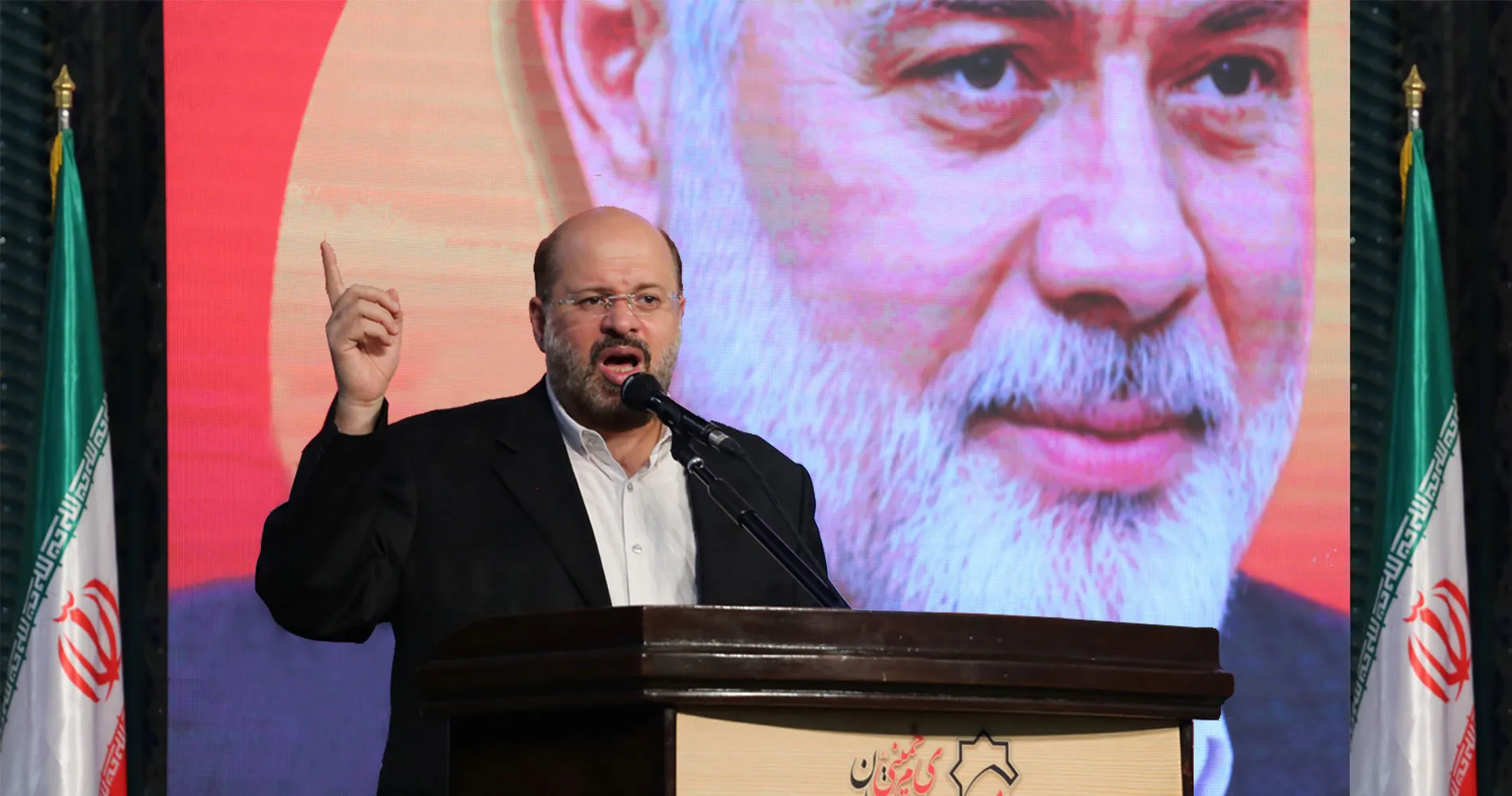Israel could threaten to use its nuclear weapons if Iran retaliates for the killing of Hamas leader Ismail Haniyeh while he was in Tehran. The nuclear option would the worst-case scenario for the US, which is trying at all costs to avoid becoming involved directly in a hot war. Escalation will not bring back the remaining Israeli hostages. Instead, it will open the door for other nuclear powers to get involved and hinder the newly elected moderate Iranian President to improve Iran’s relationship with the West.
Heinz Gärtner
19 August 2024
Arabic version | French version | German version | Spanish version
Iran has announced that it will retaliate for the killing of Hamas leader Ismail Haniyeh. If this retaliation is stronger than in April, when around three hundred drones and missiles were intercepted by various states and therefore caused little damage in Israel, Israel’s reaction will be correspondingly greater. Even if Iran’s retaliation is moderate, a trigger for an escalation into a major war may come from Hezbollah in Lebanon, whose commander Fuad Shukr was also killed by Israel. Increasing attacks by Hezbollah could prompt Netanyahu to intervene massively in Lebanon. Iran can then no longer just stand by and watch, although it has so far tried to avoid becoming involved in a direct war with Israel and its main supporter, the USA.
Although the USA is warning of a major war, Defense Secretary Lloyd Austin has already promised Israel support, which amounts to indirect security guarantees in the event of an attack on Israel. This could actually force the US to intervene after it has already deployed its forces to the Gulf region.
If the USA reacts too hesitantly, Netanyahu could signal to the USA that Israel still has nuclear weapons if it is existentially threatened. Israeli Defense Minister Moshe Dayan had already done this in 1973 in order to force more support from the Nixon administration during the Yom Kippur War. One of Israel’s pretexts could be to disable Iran’s nuclear facilities with small nuclear warheads.
Israel has a long history of targeting Iranian nuclear scientists to disrupt Iran’s nuclear program. Between 2010 and 2020, five Iranian nuclear scientists (Masoud Ali-Mohammadi, Majid Shahriari, Darioush Rezaeinejad, Mostafa Ahmadi Roshan, and Mohsen Fakhrizadeh) were killed in foreign-linked assassinations. Iran has accused Israel of these killings.
Iran’s nuclear facilities and in particular its Natanz uranium enrichment plant were attacked in 2011 by Stuxnet, an aggressive computer code which Iran accused the US and Israel of developing and using it to target its nuclear industrial control systems.
Although Israel is not about to use nuclear weapons at the moment, it is using “nuclear coercion” to blackmail the USA into intervening more and more militarily. Kissinger was indeed concerned in 1973. “We must ensure that Israel wins, but gets a bloody nose, but above all that the USA remains unscathed!” he said at the time.
Netanyahu’s main enemy is Iran and he will stop at nothing until it is isolated in the region. The idea of using nuclear weapons against Iran’s nuclear program is also nothing new. Ultimately, however, Netanyahu is not concerned with nuclear weapons, but with Iran. It was also no coincidence that Israeli Culture Minister Amichai Eliyahu brought nuclear weapons into play early on. The use of nuclear weapons is a horror scenario for the USA, which it wants to prevent at all costs. It would also open the door for Russia.
By ordering the assassination of Ismail Haniyeh in Tehran, Prime Minister Netanyahu was pursuing several goals. Firstly, he can claim that he has achieved his goal of weakening the terrorist organization, even though negotiations on a ceasefire in the Gaza Strip and the release of prisoners have now stalled. Secondly, he has undermined the newly elected moderate Iranian president, who had sought to improve relations with the West and revitalize the nuclear agreement. Third, Netanyahu has demonstrated to the United States that he will act regardless of who is in the White House. Ultimately, his actions could draw the US into a wider regional war as Israel fights on multiple fronts.
Another Casus Belli occurred on 1 April 2024 when Israel attacked Iran’s Embassy in Damascus, Syria, killing 16 people including 8 officers of the Islamic Revolutionary Guard (IRGC) and 2 Syrian civilians, as well as destroying the Iranian consular building. This act on the part of Israel violated the sovereign rights of states under the Vienna Convention on Diplomatic Relations of 1961, Article 22 which states “1. The [diplomatic] premises shall be inviolable…2. The receiving State is under a special duty to take all appropriate steps to protect the premises of the mission against any intrusion or damage.”
Iran could also refrain from retaliating if the perpetrators of the attack can be arrested. However, this would also require the USA to provide Iran with information about the perpetrators. This could prevent a further escalation with an action-reaction. Ultimately, a model could be the Resolution of the UN-Security Council 598 at the end of the Iran-Iraq-war 1987, which called on the warring parties to observe an immediate ceasefire, to discontinue all military actions, and requests a “comprehensive, just and honourable settlement, acceptable to both sides”.







